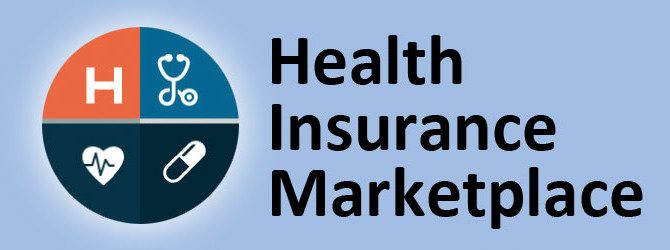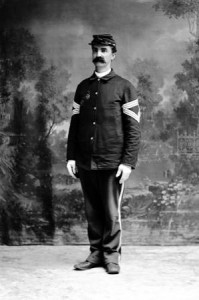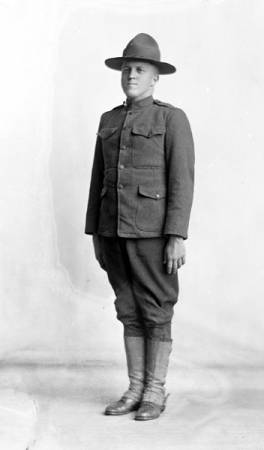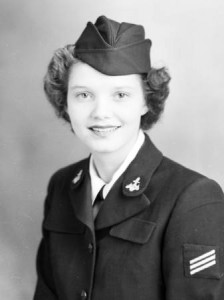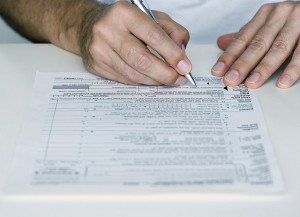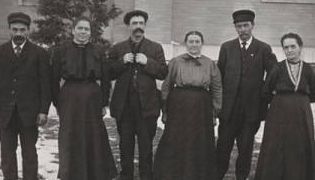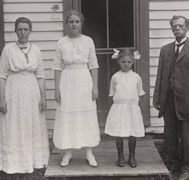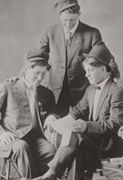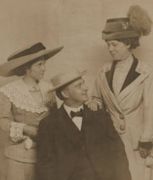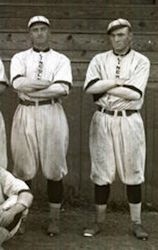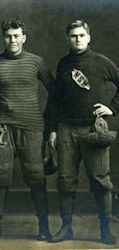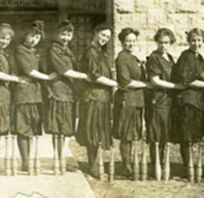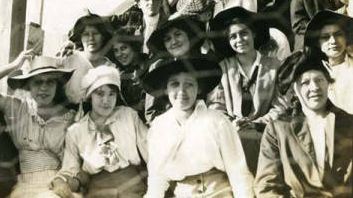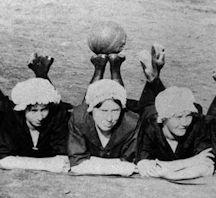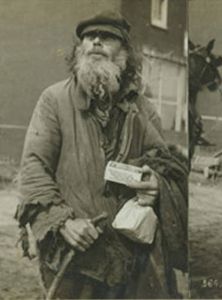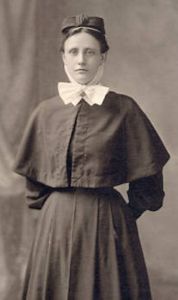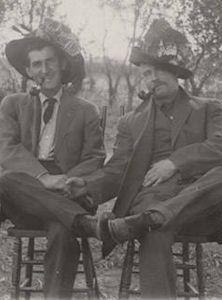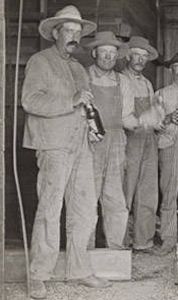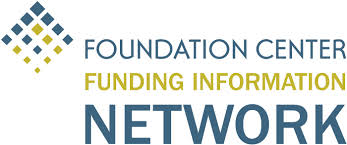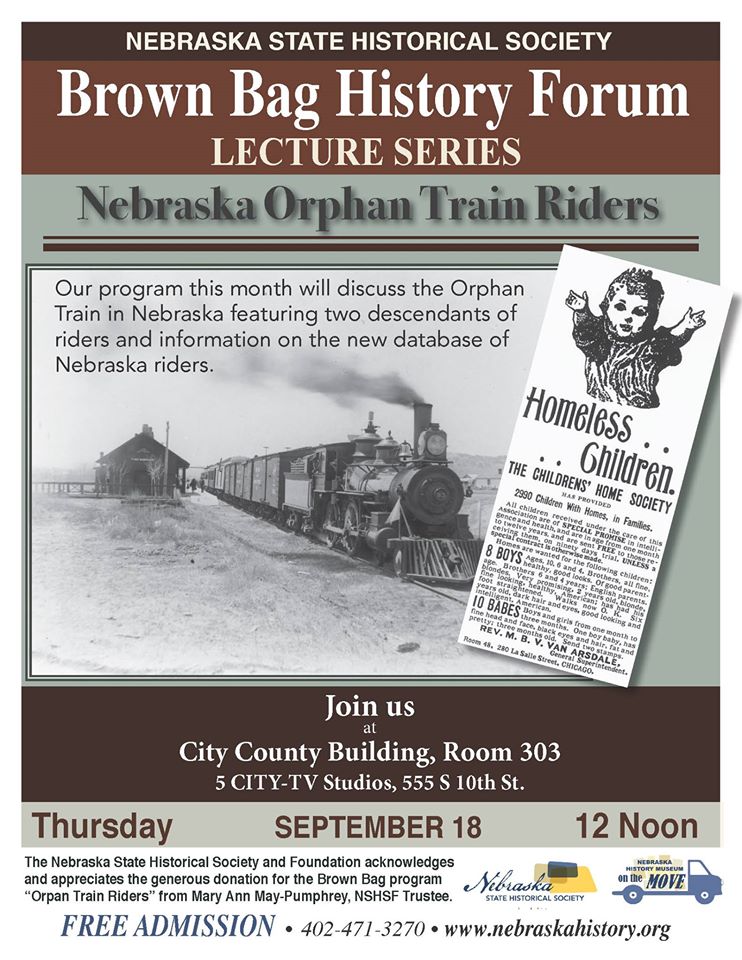Search the Blog
Categories
- Books & Reading
- Broadband Buzz
- Census
- Education & Training
- General
- Grants
- Information Resources
- Library Management
- Nebraska Center for the Book
- Nebraska Memories
- Now hiring @ your library
- Preservation
- Pretty Sweet Tech
- Programming
- Public Library Boards of Trustees
- Public Relations
- Talking Book & Braille Service (TBBS)
- Technology
- Uncategorized
- What's Up Doc / Govdocs
- Youth Services
Archives
Subscribe
Category Archives: Information Resources
Immigration Information
In light of President Obama’s immigration speech last night, libraries may be receiving more questions about contacting Immigration Services.
Please take a moment to make note of, bookmark, or post these sources for information:
USCIS Nebraska Field Office: Omaha (Website)
USCIS
1717 Avenue H
Omaha, NE 68110
402-633-4000
USCIS National Customer Service Center (Website)
1 (800) 375-5283
1 (800) 767-1833 (TTY)
Only Two More Days Until Health Insurance Open Enrollment: November 15th-February 15, 2015
A one-page guide to the Health Insurance Marketplace
Here’s a quick rundown on the most important things to know about the Health Insurance Marketplace, sometimes known as the health insurance “exchange.” Follow the links for more information on each topic.
Important. 2014 Marketplace Open Enrollment ended March 31. You can still buy a Marketplace health plan only if you qualify for a special enrollment period. You can apply for Medicaid and CHIP any time. Find out if you qualify for a Special Enrollment Period or Medicaid and CHIP. Open Enrollment for 2015 coverage starts November 15, 2014.
The Health Insurance Marketplace helps uninsured people find health coverage. Fill out a Marketplace application and we’ll tell you if you qualify for:
- Private health insurance. Plans cover essential health benefits, pre-existing conditions, and preventive care. Some plans include dental coverage. In other cases, free-standing dental plans are available.
- Lower costs based on your household size and income. You can preview plans available in your area right now, with prices based on your income and household size. Most people who apply will qualify for lower costs.
- Medicaid and the Children’s Health Insurance Program (CHIP). These programs cover millions of families with limited income. If it looks like you qualify, we’ll share information with your state agency and they’ll contact you. Many but not all states are expanding Medicaid to cover more people. Find out what Medicaid expansion means for you.
Most people are eligible to use the Marketplace. Learn more about immigration status and eligibility.
Most people must have health coverage or pay a penalty. If you don’t have coverage in 2014, you’ll pay a fee of either 1% of your income, or $95 per adult ($47.50 per child), whichever is higher. You’ll pay the fee on your 2015 income taxes.
Some people qualify for an exemption from the fee, based on income or other factors.
You’re considered covered if you have Medicare, Medicaid, CHIP, any job-based plan, any plan you bought yourself, COBRA, retiree coverage, TRICARE, VA health coverage, or some other kinds of health coverage.
You can also buy a plan outside the Marketplace and still be considered covered. If you buy outside the Marketplace, you won’t be eligible for premium tax credits or lower out-of-pocket costs based on your income.
If you’re eligible for job-based insurance, you can consider switching to a Marketplace plan. But you won’t qualify for lower costs based on your income unless the job-based insurance isn’t considered affordable or doesn’t meet minimum requirements.
If you have Medicare, you’re considered covered and don’t have to make any changes. If you have Medicare, you can’t use the Marketplace to buy a supplemental plan or dental plan.
Learn how to apply through the Marketplace—online, by phone, or with a paper application..
Questions? Call 24 hours a day, 7 days a week: 1-800-318-2596 (TTY: 1-855-889-4325)
New Government Publications Received at the Library Commission
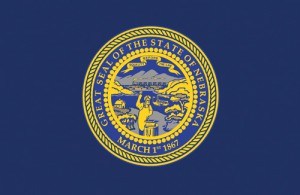 New state government publications ranging from Administrative Services to Nebraska Press, received September and October, 2014.
New state government publications ranging from Administrative Services to Nebraska Press, received September and October, 2014.
http://nlc.nebraska.gov/publications/archives/WhatsUpDoc/WUDSeptOct2014.pdf
Remembering Nebraska Veterans
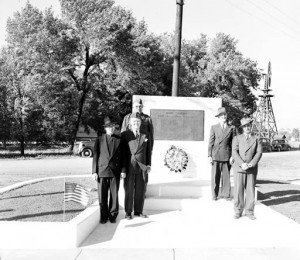 Veterans Day is an official United States holiday that honors people who have served in the U.S. Armed Forces. It is a federal holiday (originally known as Armistice Day) that is observed on November 11 ; that date being chosen because major hostilities of World War I were formally ended at the 11th hour of the 11th day of the 11th month of 1918, when the Armistice went into effect. In 1945, World War II veteran Raymond Weeks from Birmingham, Alabama, had the idea to expand Armistice Day to celebrate all veterans, not just those who died in World War I. Congress officially changed Armistice Day to Veterans Day on June 1, 1954.
Veterans Day is an official United States holiday that honors people who have served in the U.S. Armed Forces. It is a federal holiday (originally known as Armistice Day) that is observed on November 11 ; that date being chosen because major hostilities of World War I were formally ended at the 11th hour of the 11th day of the 11th month of 1918, when the Armistice went into effect. In 1945, World War II veteran Raymond Weeks from Birmingham, Alabama, had the idea to expand Armistice Day to celebrate all veterans, not just those who died in World War I. Congress officially changed Armistice Day to Veterans Day on June 1, 1954.
In honor of our Nebraska veterans, I would like to mention a few of the photographs that can be found in Nebraska Memories. The picture above is of the Veteran’s Memorial in Bruno, Nebraska. The picture to the right is of Orin W. Boston, of David City, Nebraska, wearing his father’s Union Civil War uniform. The picture below is of Clyde Zeilinger, who first served on the Mexican border, then was a medic and a prisoner of war during World War I.
The next photograph is of Evelyn Powell of David City, Nebraska, who served in the US Naval Reserve (Women’s Reserve) during World War II.
Visit Nebraska Memories to search for or browse through many more historical images digitized from photographs, negatives, postcards, maps, lantern slides, books and other materials.
Nebraska Memories is a cooperative project to digitize Nebraska-related historical and cultural heritage materials and make them available to researchers of all ages via the Internet. Nebraska Memories is brought to you by the Nebraska Library Commission. If your institution is interested in participating in Nebraska Memories, see http://nlc.nebraska.gov/nebraskamemories/participation.aspx for more information, or contact Beth Goble, Historical Projects Librarian, or Devra Dragos, Technology & Access Services Director.
UPDATE: IRS Tax Form Program for Libraries
On Tuesday, the Internal Revenue Service (IRS) announced that the agency will continue to deliver 1040 EZ forms to public libraries that are participating in the Tax Forms Outlet Program (TFOP). TFOP offers tax products to the American public primarily through participating libraries and post offices. The IRS will distribute new order forms to participating libraries in the next two to three weeks.
The IRS released the following statement on November 4, 2014:
Based on the concerns expressed by many of our TFOP partners, we are now adding the Form 1040 EZ, Income Tax Return for Single and Joint Filers with No Dependents, to the list of forms that can be ordered. We will send a supplemental order form to you in two to three weeks. We strongly recommend you keep your orders to a manageable level primarily due to the growing decline in demand for the form and our print budget. Taxpayers will be able to file Form 1040 EZ and report that they had health insurance coverage, claim an exemption from coverage or make a shared responsibility payment. However, those who purchased health coverage from the Health Insurance Marketplace must use the Form 1040 or 1040A.Your help communicating this to your patrons within your normal work parameters would be greatly appreciated.
We also heard and understood your concerns of our decision to limit the number of Publication 17 we plan to distribute. Because of the growing cost to produce and distribute Pub 17, we are mailing to each of our TFOP partners, including branches, one copy for use as a reference. We believe that the majority of local demand for a copy of or information from Publication 17 can be met with a visit to our website at www.irs.gov/formspubs or by ordering it through the Government Printing Office. We value and appreciate the important work you do providing IRS tax products to the public and apologize for any inconvenience this service change may cause.
Public library leaders will have the opportunity to discuss the management and effectiveness of the Tax Forms Outlet Program with leaders from the IRS during the 2015 American Library Association Midwinter Meeting session “Tell the IRS: Tax Forms in the Library.” The session takes place on Sunday, February 1, 2015.
Reprinted from District Dispatch, November 4, 2014.
National Library of Medicine Joins The Commons on Flickr
The National Library of Medicine is pleased to announce that it is now a participating institution of the Commons on Flickr.
The Commons on Flickr was launched in 2008 as a pilot project in partnership with the Library of Congress in order to increase access to publicly-held photography collections and to invite the general public to provide information about the collections. The National Library of Medicine now joins a distinguished, international group of nearly one hundred cultural institutions in providing greater access to its collection and inviting public use of and engagement with these images held in the public trust through The Commons on Flickr.
Images from the historical collections of the History of Medicine Division, including public health posters, book illustrations, photographs, fine art work, and ephemera, have always been available through the Images from the History of Medicine database, which includes over 70,000 images illustrating the social and historical aspects of medicine dated from the 15th to the 21st century. Now, people can also access them through the Commons on Flickr via a photostream where visitors can contribute information about the images by adding comments and tags. By adding a new way to see our collections through Flickr we hope to learn more details about our collections, create dialog about our holdings, and share knowledge with the public. Our collection of images on Flickr will continue to grow so we hope visitors will check back frequently for new content.
Source: NLM
Posted in Information Resources
Leave a comment
Halloween Inspiration
Are you still searching for that perfect Halloween costume? How about a historic costume inspired by the clothing choices of Nebraskan’s from 100 years ago. You can find plenty of inspiration in Nebraska Memories. There is a wide variety of options ranging from formal to informal attire.
Let’s start out with looking at some of the more formal apparel. Men it looks like you are going to need a three piece suit, shirt, tie and a hat if you have one. Ladies you are going to need a long skirt and a blouse with a high neckline. You may also want to find a hat to complete your outfit.
Men if the idea of wearing a three piece suit doesn’t appeal to you there are plenty of other options. How about dressing as a baseball player from 1914 or a football player from 1909? Ladies if you are going to be sports fan it appears that a hat is required. If you actually want to participate in sports you will need to find a pair of bloomers or a nice ruffled cloth cap.
If you haven’t spotted a winning costume idea yet here are a few more. I really wish we knew the story behind the picture of the two men smoking their pipes while wearing ladies’ hats.
I hope these images provided you with a bit of inspiration as you are working on your Halloween costume. If these looks are a too boring you can always complete the outfit by applying some fake blood and zombie makeup. Just like the folks in these pictures remember not to smile.
Visit Nebraska Memories to search for or browse through many more historical images digitized from photographs, negatives, postcards, maps, lantern slides, books and other materials.
Nebraska Memories is a cooperative project to digitize Nebraska-related historical and cultural heritage materials and make them available to researchers of all ages via the Internet. Nebraska Memories is brought to you by the Nebraska Library Commission. If your institution is interested in participating in Nebraska Memories, see http://nlc.nebraska.gov/nebraskamemories/participation.aspx for more information, or contact Beth Goble, Historical Projects Librarian, or Devra Dragos, Technology & Access Services Director.
EBSCO Fall Database Trials: Flipster, MyHeritage, MasterFILE Premier, and NoveList Plus
This fall EBSCO is offering Nebraska libraries trial access to the following databases:
- MyHeritage Library Edition – Leading family history network MyHeritage is now available to libraries exclusively through EBSCO Information Services. The new MyHeritage Library Edition will provide access to a vast collection of U.S. and international documents online, including birth, death, and marriage records from 48 countries, the complete US and UK censuses, immigration, military and tombstone records and more than 1.5 billion family tree profiles. Library subscriptions to this service include remote access, allowing patrons to search the service from the comfort of their own homes.
- Flipster – Flipster provides libraries with digital magazine subscription packages to popular magazines. that patrons can easily access via computers, laptops, and mobile devices. Flipster boasts no hidden platform fees and a simple sign-in process.
- MasterFile Premier – Designed specifically for public libraries, MasterFILE Premier provides access to nearly 17,000 full-text periodicals (including Time, Inc. titles), more than 500 full-text reference books, and over 81,900 primary source documents, as well as over 935,000 photos, maps and flags.
- NoveList Plus – NoveList Plus features reading recommendations for both fiction and nonfiction for all ages and, in the near future, will add audiobook recommendations. It also includes series information, professional reviews, read-alikes, award winners, and more!
- NoveList K-8 Plus – NoveList K-8 Plus is especially for younger readers. It has reading recommendations for both fiction and nonfiction, for kids in grades K-8. Use it to find just the right books for every reader.
Trial access instructions were distributed via an October 16 message to the Trial mailing list. Nebraska librarians who didn’t receive this information or who would like it sent to them again may contact Susan Knisely. The Flipster database trial is set to expire on November 18, 2014; all other EBSCO database trials run through the end of the calendar year (12/31/14).
Please feel free to contact inside account executive Phil Gallant for questions or price quotes, phone 800-653-2726 ext 3560 or pgallant@ebsco.com
Posted in Information Resources, Technology
Leave a comment
October is National Reading Group Month!
October is National Reading Group Month!
To help you celebrate your reading group, here are some novels that feature book groups you can check out from the Nebraska Library Commission Book Club Collection.
The Guernsey Literary and Potato Peel Pie Society by Mary Ann Shaffer
21 Copies
 Available to Talking Book Service users
Available to Talking Book Service users
Request This Kit
Jane Austen Book Club by Karen Joy Fowler
13 Copies (also 1 Video (DVD) copy)
Request This Kit
The Reading Group by Elizabeth Noble
7 Copies
Request This Kit
Reading Lolita in Tehran by Azar Nafisi
12 Copies
Request This Kit
Posted in Books & Reading, General, Information Resources
Leave a comment
Ebola resources
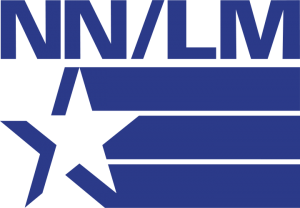 Looking for a reliable resource on Ebola? The National Library of Medicine’s Disaster Information Management Research Center, has created a new robust web page for just such resources.
Looking for a reliable resource on Ebola? The National Library of Medicine’s Disaster Information Management Research Center, has created a new robust web page for just such resources.
You can easily find and view these free resources by going to the National Library of Medicine web page at http://nlm.nih.gov and put Ebola in the search box. This in turn will lead you to the page for Ebola Outbreak 2014: Information Resources. Or find it directiy at: http://sis.nlm.nih.gov/dimrc/ebola_2014.html. It includes information which can direct you to several U.S. organizations, International organizations, maps, training materials, situation reports and more. Check it out today!
(via Marty Magee)
Posted in Information Resources
Leave a comment
“Grantseeking Basics” and “Introduction to Finding Funders” training October 28
The Love Library at the University of Nebraska – Lincoln will host a free workshop on grantseeking for nonprofit organizations on Tuesday, October 28th from 10:00am to 12:00pm in Love Library, Room 110. The sessions will be led by Kief Schladweiler, Funding Information Network Services Specialist with the Foundation Center (http://foundationcenter.org). Mr. Schladweiler will highlight the electronic and print resources available for your free use at the University of Nebraska – Lincoln’s Love Library, a Funding Information Network partner of the Foundation Center.
Grantseeking Basics
Gain an introduction to the world of foundation fundraising. Are you a representative of a nonprofit organization? New to fundraising? Do you want to learn how the funding research process works, and what tools and resources are available? Learn how to become a better grantseeker! We will cover: what you need to have in place before you seek a grant; the world of grantmakers; the grantseeking process; and available tools and resources.
Introduction to Finding Funders
This session provides an introduction to the Foundation Center’s comprehensive online database, Foundation Directory Online Professional. Learn how to create customized searches to develop targeted lists of foundations that will match your organization’s funding needs. We will spend time exploring Power Search, which allows you to search across nine Foundation Center databases – grantmakers, grants, companies, 990s, news, jobs, RFPs, nonprofit literature, and IssueLab reports.
Save a Place for Yourself
Please come if you can, and bring friends and associates.
To guarantee a seat, please contact Bob Bolin at the UNL Libraries at:
(402) 489-4926 or rbolin2@unl.edu
Kief Schladweiler has been the Foundation Center’s Funding Information Network Services Specialist since 2005. Prior to that he served as the Center’s online librarian for several years. He joined the Foundation Center in 1999 after working as a reference librarian for The New York Public Library. He received his M.A. in Library and Information Science from the University of Wisconsin-Madison.
Health Happens in Libraries…Continues
 WebJunction, in partnership with ZeroDivide and with support from the Institute of Museum and Library Services, will expand the focus of their Health Happens in Libraries program to magnify the role of public libraries as key contributors to community health. They will partner with public libraries and health information experts to develop health competency pathways that library staff can use to advance services in common community health topics. They’ll also work with 3 – 5 public libraries and their local health partners to co-create community engagement models, and share those models broadly. And finally, a range of communications resources will be developed to help library staff advocate with members of local communities about how libraries help in health and wellness, and these resources will be freely available for use by any library. You can read the full post “Connecting for Care in Your Community” about their recent and upcoming work at WebJunction.org.
WebJunction, in partnership with ZeroDivide and with support from the Institute of Museum and Library Services, will expand the focus of their Health Happens in Libraries program to magnify the role of public libraries as key contributors to community health. They will partner with public libraries and health information experts to develop health competency pathways that library staff can use to advance services in common community health topics. They’ll also work with 3 – 5 public libraries and their local health partners to co-create community engagement models, and share those models broadly. And finally, a range of communications resources will be developed to help library staff advocate with members of local communities about how libraries help in health and wellness, and these resources will be freely available for use by any library. You can read the full post “Connecting for Care in Your Community” about their recent and upcoming work at WebJunction.org.
Resource Review
- The full archive is now available for the September 2014 WebJunction webinar: Health Happens in Libraries: Looking Ahead to 2015 Open Enrollment. Presenters from the Centers for Medicare and Medicaid Services, Office of Minority Health, and Carnegie Library of Pittsburgh shared strategies and resources to connect with partners and support patrons who may have information needs regarding the health insurance marketplace, and how to understand and utilize their new coverage.
- Enroll America is hosting a free webinar series regarding Effective Strategies for the Second Open Enrollment Period, including a focus on Health Insurance Literacy in a Monday, 10/20 session at 2 PM ET. Library staff or partners interested in community outreach on health topics may benefit from the information in this series. Archived recordings of sessions will also be made available.
- October is Health Literacy Month! Great resources to help your organizations, partners, and community members understand what health literacy is, why it matters, and how to strengthen it are available from the National Network of Libraries of Medicine, Centers for Disease Control and Prevention, and MedlinePlus.
Open Enrollment for 2015 Health Insurance coverage begins November 15th
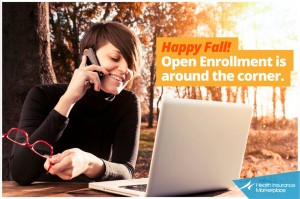 A one-page guide to the Health Insurance Marketplace
A one-page guide to the Health Insurance Marketplace
Here’s a quick rundown on the most important things to know about the Health Insurance Marketplace, sometimes known as the health insurance “exchange.” Follow the links for more information on each topic.
Important. 2014 Marketplace Open Enrollment ended March 31. You can still buy a Marketplace health plan only if you qualify for a special enrollment period. You can apply for Medicaid and CHIP any time. Find out if you qualify for a Special Enrollment Period or Medicaid and CHIP. Open Enrollment for 2015 coverage starts November 15, 2014.
The Health Insurance Marketplace helps uninsured people find health coverage. Fill out a Marketplace application and we’ll tell you if you qualify for:
- Private health insurance. Plans cover essential health benefits, pre-existing conditions, and preventive care. Some plans include dental coverage. In other cases, free-standing dental plans are available.
- Lower costs based on your household size and income. You can preview plans available in your area right now, with prices based on your income and household size. Most people who apply will qualify for lower costs.
- Medicaid and the Children’s Health Insurance Program (CHIP). These programs cover millions of families with limited income. If it looks like you qualify, we’ll share information with your state agency and they’ll contact you. Many but not all states are expanding Medicaid to cover more people. Find out what Medicaid expansion means for you.
Most people are eligible to use the Marketplace. Learn more about immigration status and eligibility.
Most people must have health coverage or pay a penalty. If you don’t have coverage in 2014, you’ll pay a fee of either 1% of your income, or $95 per adult ($47.50 per child), whichever is higher. You’ll pay the fee on your 2015 income taxes.
Some people qualify for an exemption from the fee, based on income or other factors.
You’re considered covered if you have Medicare, Medicaid, CHIP, any job-based plan, any plan you bought yourself, COBRA, retiree coverage, TRICARE, VA health coverage, or some other kinds of health coverage.
You can also buy a plan outside the Marketplace and still be considered covered. If you buy outside the Marketplace, you won’t be eligible for premium tax credits or lower out-of-pocket costs based on your income.
If you’re eligible for job-based insurance, you can consider switching to a Marketplace plan. But you won’t qualify for lower costs based on your income unless the job-based insurance isn’t considered affordable or doesn’t meet minimum requirements.
If you have Medicare, you’re considered covered and don’t have to make any changes. If you have Medicare, you can’t use the Marketplace to buy a supplemental plan or dental plan.
Learn how to apply through the Marketplace—online, by phone, or with a paper application..
Questions? Call 24 hours a day, 7 days a week: 1-800-318-2596 (TTY: 1-855-889-4325)
Webinar: Grant Writing for Preservation and Access Digitization Projects
A live training webinar, “Grant Writing for Preservation and Access Digitization Projects,” will be presented on September 30, 2014.
This webinar has been rescheduled. Registration is open to any new registrants. Those who have already registered do not have to re-register. Your previous registration will carry over to the new date.
Register today for “Grant Writing for Preservation and Access Digitization Projects”
- Start time: 2 p.m. Eastern Time
- Duration: 60 minutes
- Speaker: David Walls, Preservation Librarian, U.S. Government Printing Office
- Learning outcomes: The webinar will cover: preparing for your grant proposal, matching your project to the appropriate funding agency, writing an effective grant proposal while avoiding common faults, and understanding the review process.
- Expected level of knowledge for participants: No prerequisite knowledge required.
The webinar is free, however registration is required. Upon registering, a confirmation email will be sent to you. This registration confirmation email includes the instructions for joining the webinar.
Registration confirmations will be sent from sqldba @ icohere.com. To ensure delivery of registration confirmations, registrants should configure junk mail or spam filter(s) to permit messages from that email address. If you do not receive the confirmation, please notify GPO at FDLPOutreach.
GPO’s eLearning platform is now presenting webinars using WebEx. In order to attend or present at a GPO-hosted webinar, a WebEx plug-in must be installed in your internet browser(s). Download instructions.
For access to other archived Federal Depository Library Program webinars and webcasts and for a calendar of upcoming webinars and educational events, please visit the Training and Events page on FDLP.gov.
Brown Bag History Forum: Nebraska Orphan Train Riders
Webinar: How Social Media Can Help Your Business Succeed
Looking for Social Media Tips? Register for the SBA and Hootsuite Webinar
Social media is becoming an increasingly important communication channel for small businesses. However, knowing where to start is perhaps the number one obstacle holding many small business owners back. That’s why SBA has teamed up with Hootsuite for a free webinar about how social media can help your small business succeed on Tuesday, September 16 at 2:00 PM ET (1:00 PM CENTRAL).
In this 1 hour webinar, Don Baron, Director of SMB Business Development at Hootsuite will share strategies that can help you better utilize social media for your small business.
Participants will learn:
- Why social media is relevant for small businesses
- A variety of social media strategies as they relate to marketing, sales and support
- Tactics and tools that will help you execute your strategies
- Case studies of small business success on social media
Small Business Administration Opportunity for Auburn and Nemaha County in Nebraska
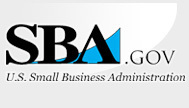 Small businesses in certain parts of southeast Nebraska seeking to buy and sell to the federal government soon will be able to take advantage of a program to successfully bid for contracts.
Small businesses in certain parts of southeast Nebraska seeking to buy and sell to the federal government soon will be able to take advantage of a program to successfully bid for contracts.
Thanks to a redesignation Oct. 1, Auburn and Nemaha County will be qualified as a Historically Underutilized Business Zones (HUBZone). This program helps small businesses in urban and rural communities gain preferential access to federal procurement opportunities. SBA’s HUBZone program is in line with the efforts of both the Administration and Congress to promote economic development and employment growth in distressed areas by providing access to more federal contracting opportunities.
The program’s benefits for HUBZone-certified companies include competitive bidding for contracts, a 10 percent price evaluation preference in full and open contract competitions, as well as subcontracting opportunities. Moreover, the federal government has a goal of awarding three percent of all dollars for federal prime contracts to HUBZone-certified small business concerns.
The SBA regulates and implements the HUBZone program by determining which businesses are eligible to receive HUBZone contracts, maintains a listing of qualified HUBZone small businesses that federal agencies can use to locate vendors, adjudicates protests of eligibility to receive HUBZone contracts and reports to the Congress on the program’s impact on employment and investment in HUBZone areas.
Auburn and Nemaha County were redesignated based on the high rate of unemployment in that area.
For guidance in southeast Nebraska on bidding for federal contracts, please contact Julie Ann Wilhelm at the Auburn Procurement Technical Assistance Center at 402-414-5077 or jwilhelm@unomaha.edu.
Updates to HUBZones are public and anyone can subscribe to them. Consider subscribing to HUBZone News.
As always, small businesses and economic resource providers can contact the SBA helpdesk at hubzone@sba.gov with your questions. You may also call in to the office hours. Details are on our website at www.sba.gov/hubzone.
Webinar: Understanding Social Security and MySSA
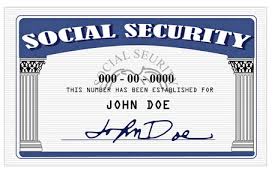 The American Library Association (ALA) is encouraging librarians to know how to use My Social Security (MySSA), the online Social Security resource.
The American Library Association (ALA) is encouraging librarians to know how to use My Social Security (MySSA), the online Social Security resource.
A webinar, presented by leaders and members of the development team of MySSA, will provide listeners with an overview of MySSA. In addition to receiving benefits information in print, the Social Security Administration is encouraging librarians and patrons to create an online MySSA account to view and track benefits.
Listeners will learn about viewing earnings records and receiving instant estimates of their future Social Security benefits. Those already receiving benefits can check benefit and payment information and manage their benefits.
Speakers include:
- Maria Artista-Cuchna, Acting Associate Commissioner, External Affairs
- Kia Anderson, Supervisory Social Insurance Specialist
- Arnoldo Moore, Social Insurance Specialist
- Alfredo Padilia Jr., Social Insurance Specialist
- Diandra Taylor, Management Analyst
Registration is full for the live webinar on Wednesday, September 17, 2014.
However, to be notified when the recorded session is available, please go to Lib2Gov Webinar: MySSA.
.
FREE WEBINAR: Federal Legislative History 101
 A live training webinar, “Federal Legislative History 101,” will be offered on Tuesday, October 7, 2014.
A live training webinar, “Federal Legislative History 101,” will be offered on Tuesday, October 7, 2014.
Register today for “Federal Legislative History 101”
- Start time: 2:00 p.m. Eastern Time/ 1:00 Central
- Duration: 60 minutes
- Speaker: Rick McKinney is Assistant Law Librarian / Legislative Librarian at the Federal Reserve Board Law Library in Washington, D.C., where he has served for the past 30 years. He is the founder and principal editor of LLSDC’s Legislative Source Book on the Internet and has authored numerous articles and presentations in the field of Federal statutory, legislative, and regulatory research.
- Learning outcomes: The webinar will discuss the ways in which Federal statutes are published and cited, what Federal legislative histories are and how they are used, the normal steps in compiling and researching Federal legislative histories, and the various resources available for Federal legislative history research – both free and commercial.
- Expected level of knowledge for participants: No prerequisite knowledge required
The webinar is free, but registration is required. Upon registering, a confirmation email, which includes instructions for joining the webinar, will be sent to you.
Registration confirmations will be sent from sqldba @ icohere.com. To ensure delivery of registration confirmations, registrants should configure junk mail or spam filter(s) to permit messages from that email address. If you do not receive the confirmation, please notify GPO at FDLPOutreach.
GPO’s eLearning platform is now presenting webinars using WebEx. In order to attend or present at a GPO-hosted webinar, a WebEx plug-in must be installed in your internet browser(s). Download instructions.
For access to other archived Federal Depository Library Program webinars and webcasts and for a calendar of upcoming webinars and educational events, please visit the Training and Events page on FDLP.gov.
Nebraska Librarians Invited to Money Smart Week Webinar Oct. 1
ALA is hosting a free webinar to help libraries plan for Money Smart Week @your library®. On Oct. 1, 2014, at 11:00 a.m. CDT, learn how your library can participate in 2015 Money Smart Week @your library®. Register at http://tinyurl.com/opy5mvu and participate in this hour-long webinar that will provide you with resources, promotional materials, programming ideas and ways to partner with others in your community, campus or school to get Money Smart Week going at your library.
Money Smart Week @ your library, April 18-25, 2015, is a national initiative in its fifth year between the American Library Association (ALA) and the Federal Reserve Bank (Chicago) to provide financial literacy programming to help members of your community—retirees, school kids, college students, everyone—better manage their personal finances. In 2014 more than 700 libraries in 48 states participated.
Learn from veterans and first-timers how Money Smart Week @your library® has been a great success for their libraries and how it can be in yours. Discussions will show how easy it is to convey financial topics to your library users.
Topics presented last year include basic banking services, credit and debt management, estate planning, going green to save, housing/mortgages/foreclosures, going to college, identity theft/investment scams/financial fraud, insurance, kids and money, money management for women, preparing for financial emergencies, retirement planning, small business and entrepreneurship, taxes, teens and money and unemployment and job transitioning.
Visit the Money Smart Week home page of the Federal Reserve Bank (Chicago) at http://www.moneysmartweek.org/ for additional details about Money Smart Week.

